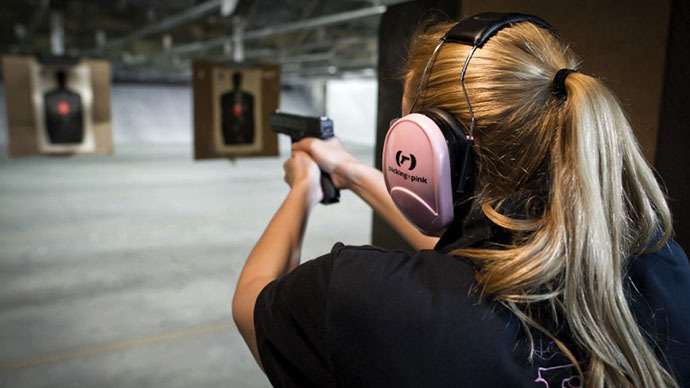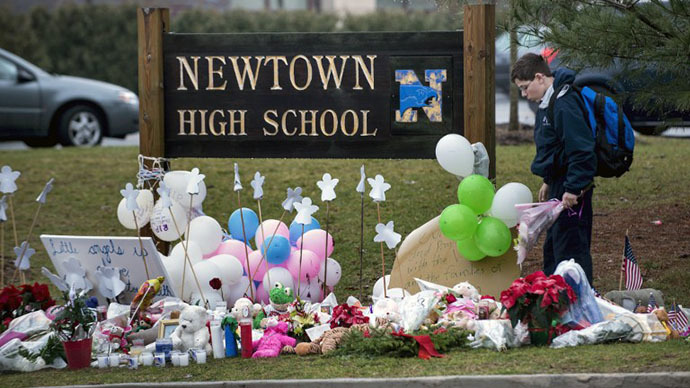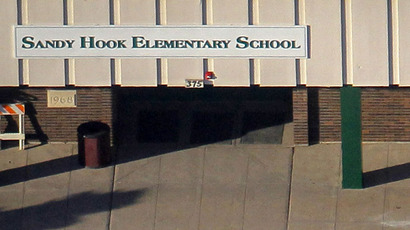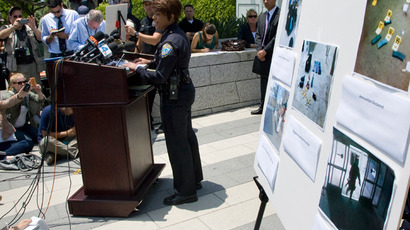Educational aims? Arkansas town arms teachers to prevent school shootings

Teachers in the town Clarksville, Arkansas will be packing heat around school when students return to the classroom this August. The move is aimed at increasing security at local educational institutions amid a wave of US school shootings.
More than 20 teachers, administrators and other staff will
receive 9 mm handguns as the Clarksville administration took
advantage of a little-known Arkansas law, which allows licensed,
armed security guards on campus.
The school employees taking part in the program will undergo 53
hours of training to be certified as guards. Signs will be posted
at each school about the armed staff, but the identities of
educators carrying weapons will be kept secret.
“The plan we've been given in the past is `Well, lock your
doors, turn off your lights and hope for the best,”
Superintendent David Hopkins told AP. “But as deadly incidents
continued to happen in schools, he explained, the district
decided, ‘That's not a plan.”
After the attack at Newtown elementary in Connecticut last
December saw 20 children and six teachers shot dead, the idea of
arming schools against gunmen became a subject of heated debate
across the US.
But, despite the strong backing of the National Rifle
Association, the initiative didn’t pass in even the most
conservative states, facing resistance from educators and
warnings of higher premiums for schools from insurance companies.
Clarksville, which is situated in strongly conservative Arkansas
where gun ownership is common and gun laws are permissive, is
setting a precedent by arming its teachers. State officials for
their part have no intention of blocking the plan.
The town of 9,200, located about 100 miles northwest of Little
Rock, hosts an annual peach festival and isn’t known for having
particularly dangerous schools.
But, according to Hopkins, it is the numerous calls from worried
parents after the Connecticut shooting which boosted the idea of
arming the school employees.

The superintendent said he and other Clarksville school leaders
didn't see why the district couldn't rely on its own staff and
teachers to protect students rather than spend money to hire
security.
“We're not tying our money up in a guard 24/7 that we won't
have to have unless something happens. We've got these people who
are already hired and using them in other areas,” Hopkins
said. “Hopefully we'll never have to use them as a security
guard.”
Participants in the program are given $1,100 to purchase a
handgun and holster, with the district is paying about $50,000
for ammunition and drills at a private training facility.
The training narrowly tailored for teachers to respond to
shooters on campus, includes simulation of various emergency
scenarios.
During the drills the teachers use airsoft pellet guns, while
students wear protective facemasks and jackets in order to
recreate the school environment for the trainees. The pupils who
took part in the exercise were the children of teachers and staff
involved in the program.
“There's pressure on you, because you're shooting real bullets
if this actually happened,” Cheyne Dougan, assistant
principal at Clarksville school, told AP. “I was nervous to
start, but once it started and I was going through what they had
taught us, it just took over.”
Director of training for Nighthawk Nighthawk Custom Training
Academy, Jon Hodoway, said “that teacher is going to respond
to one thing and one thing alone, and that's someone is in the
building either actively or attempting to kill people. That's
it.”
“They're not going to enforce the law. They're not going to
make traffic stops. If somebody is outside acting the fool,
they're going to call the police,” he stressed.
But not everybody seems to be happy about the Clarksville
initiative as Arkansas Education Commissioner, Tom Kimbrell,
believes it is the police who should provide security at schools,
not teachers.
Former president of the Arkansas Education Association, Donna
Morey, called the idea of arming school employees “awful,”
adding that the risk of a student accidentally getting shot or
obtaining a gun outweighs any other benefits.
“We just think educators should be in the business of educating
students, not carrying a weapon,” she said.
There’s also no consensus on the issue among pupils and parents.
Sydney Whitkanack, who will enter seventh grade this fall, said
she's grown up around firearms and does not mind if teachers are
armed “if they're concealed.”
While a mother of incoming eighth-grader, Sherry Wommack, said
the program is the reason she’s taking her son out of Clarksville
school as she thinks “police officers are trained to make
those decisions, not teachers.”














